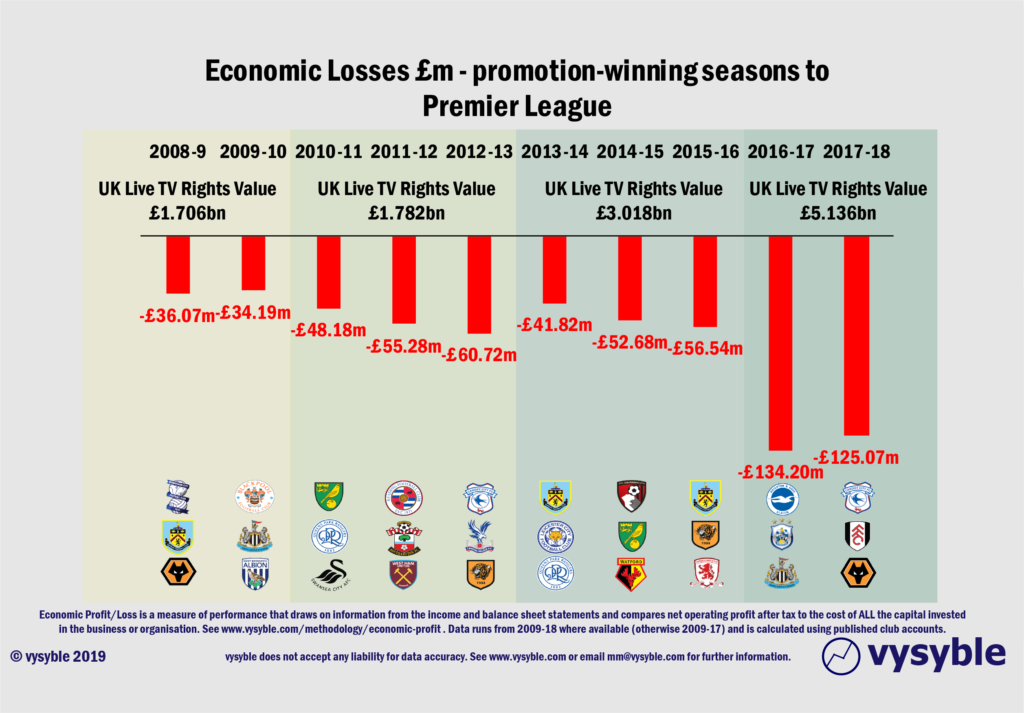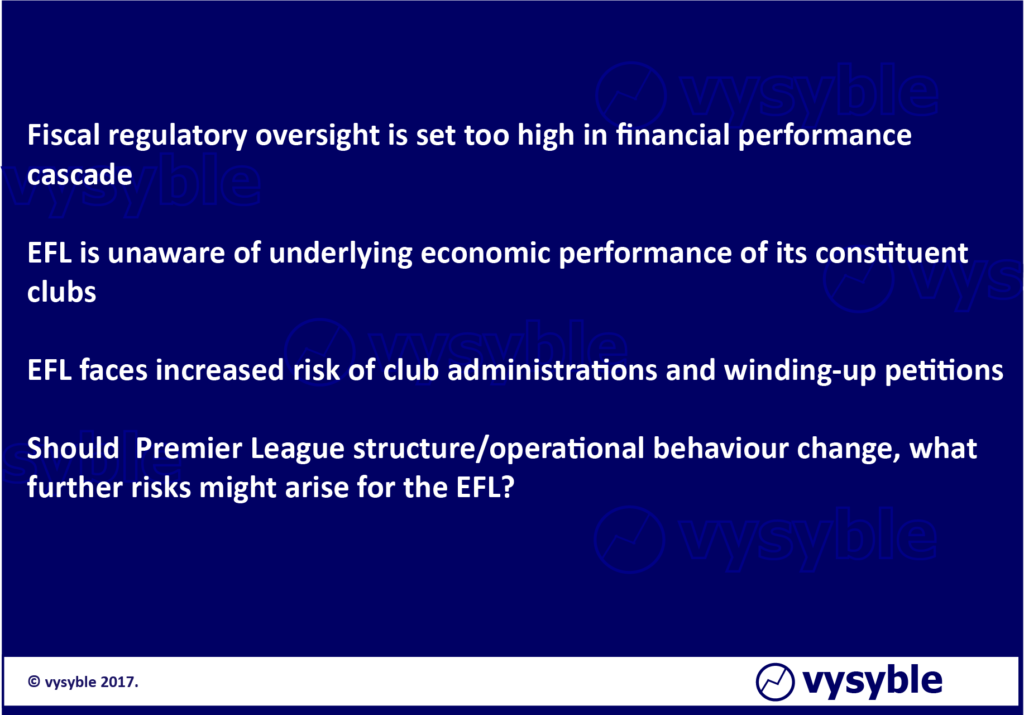Telling It Like It Is…

The cost of chasing football’s ‘Golden Ticket’.
23rd August 2019
As Dali might have said, it has been a surreal few days arguably being the “centre of attention”. In this, we are referring to our now-widely reported interaction with the EFL in 2017 given the recent and ongoing unfortunate events at Bury and Bolton.
The circumstances leading up to the infamous quote from the EFL of “Reports of this nature inflame the position and confuse the reality of the situation for supporters” were thus:
- The second edition of our annual report into Premier League club finances was published during the summer of 2017. As part of that particular dataset going back to 2008, we could also see the economic profile of clubs which had gained promotion and those which had suffered relegation from football’s top tier (the Premier League).
- Consequently, we applied our own proprietary measures to this data in order to establish the economic profit aspects of the various promotion campaigns and thus gain some insight into Championship financial dynamics and beyond.
- At the time, we were very concerned at our findings and felt anxious enough to contact the EFL to express both our worries and also to offer our services in assisting the organisation in the potential formulation of a business strategy designed to alleviate the obvious problems at club level. After all, if there is a problem (and subsequent events have proved as much), surely it will need to be solved…
- Naturally, we would argue that our work goes much deeper into the financial and economic performance of companies than a more traditional accounting perspective so we get to see a lot more detail than your average Finance Director.
- Those familiar with our work will also recognise that ‘debt’ and ‘equity’ are not our primary focus. There are plenty of other sources for debt and equity information and we would expect the EFL to already have this information. In our presentation content, not once do we devote a slide to either debt or equity. In fact, why would we do so?
- As many of our calculations and outputs are indeed proprietary, individuals on the receiving end of a presentation or data walk-through get to see the information for the first time – often there is a degree of shock or consternation as we tend to confront existing narratives and levels of transparency.
- A letter was subsequently composed and dispatched to the EFL in September 2017 and to the organisation’s credit we received an email in reply shortly afterwards. The next agreed step was to have a conference call so that we could summarise some of our findings and explain the methodology that we had used.
- During that conference call (with some of the EFL’s senior executives), our overwhelming impression was that the organisation’s key objective was more focused on preserving its image rather than trying to understand the problem or the implications of our work. Despite this, we arranged a presentation at the EFL’s office in London for the following week.
- Many of the points raised by us in that presentation concerning the financial / economic direction of the game, the pool of clubs we felt that were going to pose problems from a financial perspective and the future challenges that the EFL as an organisation would probably face have either materialised or will emerge in the near future. Indeed, the last slide in the Oct. 2017 presentation is illustrated below:

Sadly, for all concerned, the EFL chose not to engage further and as part of Matt Slater’s story later that week about our report, the organisation chose to issue that reply.
Almost two years later, clubs struggle to pay bills and field teams whilst the competition organiser tries to regulate with a set of rules that clearly do not fit the operational requirements of the modern game. The area of football governance is crying out for reform and our data merely continues to confirm this view.
We have always been keen to re-engage with the EFL. Indeed, following recent interviews broadcast on BBC News whereby Debbie Jevans, Executive Chair of the EFL, and our own John Purcell appeared separately but in the same report, we put a call into her office. That call has not been returned.
From our perspective, Debbie Jevans is in an extremely difficult position and deserves some sympathy. She has inherited an organisation which would appear to have lost its way but has almost certainly lost the trust of football supporters. The events described above took place before her tenure so it really is somebody else’s mess which she has to contend with.
However, our own frustration grows daily. We could see these events coming. Similar events will happen again. We remain eager to help.
